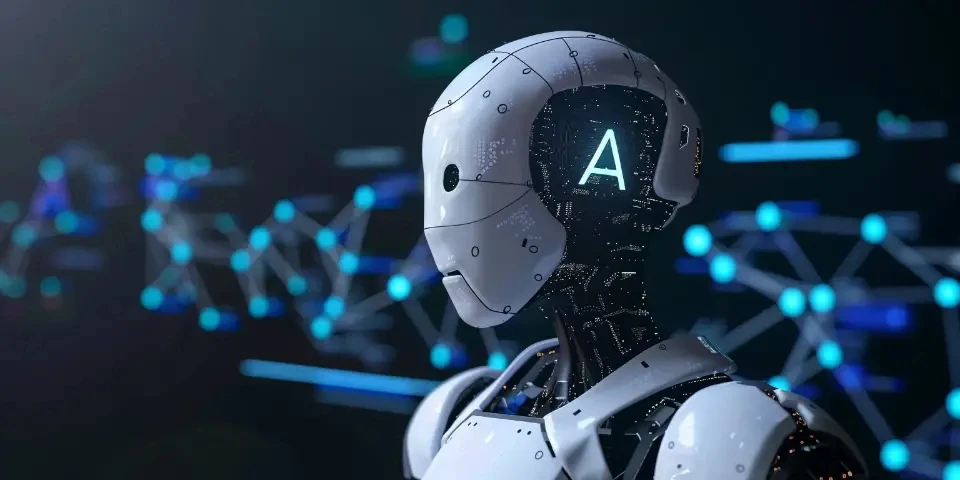Unlocking the Potential of AI A Journey into Tomorrow's World
Artificial Intelligence (AI) is no longer a distant dream or a figment of science fiction. It is becoming an integral part of our lives, revolutionizing industries and shaping the way we live, work, and interact. As AI continues to advance at an unprecedented pace, the potential it holds to transform the future is immense. In this article, we will embark on a journey into tomorrow's world and explore some key aspects of AI that are unlocking its true potential.
1. Automation and Efficiency
In the realm of business and industry, AI is playing a crucial role in automating routine tasks and streamlining operations. From chatbots and virtual assistants to robotic process automation, AI is dramatically improving efficiency and productivity. Organizations can now harness the power of AI to optimize workflows, reduce costs, and deliver faster and more accurate results.

However, it is important to strike a balance between automation and human involvement. While AI can handle repetitive and mundane tasks, the human touch is still essential for complex decision-making and creative problem-solving.
2. Healthcare Innovations
AI is revolutionizing the healthcare sector, empowering doctors, researchers, and patients alike. Machine learning algorithms can analyze vast amounts of medical data to identify patterns, make predictions, and assist in diagnosing diseases. Additionally, AI-powered robots are assisting in surgeries and carrying out tasks that are precise and highly specialized.
One of the prominent applications of AI in healthcare is personalized medicine. By analyzing an individual's genetic makeup and medical history, AI can provide tailored treatment plans, leading to better outcomes and improved patient care.
3. Enhanced Customer Experience
AI is reshaping the way businesses interact with their customers, offering personalized experiences and improving customer satisfaction. Chatbots, powered by natural language processing, are acting as virtual agents, providing instant support and answering queries round the clock.
Moreover, AI can analyze customer data and preferences to recommend products or services that align with their needs, leading to higher conversion rates and improved customer loyalty. This level of personalization is not only beneficial for businesses but also enhances the overall customer experience.
4. Smarter Transportation
The transportation industry is undergoing a significant transformation with AI at its core. Self-driving cars, enabled by AI algorithms and sensors, have the potential to revolutionize road safety, reduce traffic congestion, and minimize environmental impact.
Additionally, AI-powered logistics algorithms are optimizing routes and delivery schedules, improving the efficiency of the supply chain and reducing costs. The integration of AI in transportation promises a future of seamless mobility and sustainable practices.
5. Ethical Considerations
While AI brings immense benefits, it also raises ethical concerns that need to be addressed. The decisions made by AI systems can have profound implications on individuals and societies. It is crucial to ensure transparency, fairness, and accountability in AI algorithms and their decision-making processes.
Moreover, the potential misuse and unintended consequences of AI technology warrant cautious adoption and continuous monitoring. Ethical frameworks and regulations must be established to govern AI development and deployment, ensuring that it aligns with social values and promotes the common good.
6. Education Revolution
AI is transforming the landscape of education, making learning more personalized, accessible, and interactive. Adaptive learning platforms leverage AI algorithms to tailor educational content to individual students' needs and learning styles.
Virtual reality (VR) and augmented reality (AR) powered by AI, provide immersive educational experiences that enhance engagement and understanding. These technologies enable students to explore historical landmarks, conduct virtual experiments, and experience simulations, taking education beyond classroom boundaries.
7. AI in Finance
The financial sector is harnessing the power of AI to improve risk assessment, fraud detection, and personalized financial advisory services. Machine learning algorithms analyze vast amounts of financial data to identify patterns and anomalies, enhancing decision-making accuracy and reducing financial risks.
Robo-advisors powered by AI algorithms provide automated, personalized investment advice to individuals, democratizing access to financial planning and wealth management. With AI, the finance industry is becoming more efficient, transparent, and inclusive.
8. AI in Agriculture
AI is playing a crucial role in revolutionizing agriculture and ensuring global food security. AI-powered drones and sensor technologies are being used to monitor crop health, optimize irrigation, and detect diseases early on.
Machine learning algorithms can analyze weather patterns and historical data to provide accurate predictions for crop yields, helping farmers make informed decisions. By enabling precise resource allocation, AI is increasing agricultural productivity while minimizing negative environmental impacts.
Common Questions and Answers:
Q1: Is AI going to replace human jobs?
A1: While AI will automate certain tasks, it is more likely to augment human abilities rather than replace jobs entirely. AI can handle routine and repetitive tasks, allowing humans to focus on more complex and creative tasks that require human intuition and empathy.
Q2: Is AI safe and secure?
A2: Ensuring the safety and security of AI systems is of utmost importance. AI algorithms must be designed with robust security features to prevent vulnerabilities and protect against malicious use. Continuous monitoring and rigorous testing are essential to mitigate risks.
References:
1. Smith, J. (2021). Artificial Intelligence and Society. Oxford University Press. 2. McKinsey & Company. (2017). Artificial Intelligence: The Next Digital Frontier?
Explore your companion in WeMate